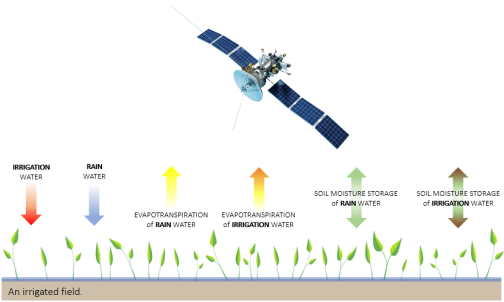Universitetsavisen
Nørregade 10
1165 København K
Tlf: 21 17 95 65 (man-fre kl. 9-15)
E-mail: uni-avis@adm.ku.dk
Ph.d.-forsvar
Ph.d.-forsvar — Søren Julsgaard Kragh 19 MARCH
Date & Time:
Place:
Auditorium Theodor Sorgenfrei at GEUS, ØSter Voldgade 10, 1350 København K
Hosted by:
Geography Section - IGN
Cost:
Free
Søren Julsgaard Kragh defends his thesis,
“Irrigation water use quantification from space using satellites”
Supervisors:
Professor Rasmus Fensholt, IGN
Senior Researcher Julian Koch, GEUS
Research Professor Simon Stisen, GEUS
Assessment Committee:
Associate Professor Chiara Corbari, POLIMI, Italy
Professor Wouter A. Dorigo, TU Wien, AT
Associate Professor Guy Schurgers (chair), IGN
Summary (shortened):
The objective of this Ph.D. thesis is to build the scientific foundation for reliable irrigation quantification. During the last decade, irrigation quantification has evolved from being mainly model-based to include a wide variety of satellite-based methods. Satellites enable us to observe how humans, through irrigation, influence the soil-vegetation system, which is challenging to model with traditional physically based models. Therefore, this thesis aims to investigate the uncertainty and robustness of satellite approaches, provide novel methodologies for irrigation quantification, and tools for global upscaling by metamodeling.
The uncertainty of the satellite approaches depends on the uncertainty of satellite data. Although we like to think of satellite products of evapotranspiration and soil moisture as observations, they are merely estimates inferred from remote sensing models and can be significantly different. Despite this, a limited focus has been on assessing the irrigation uncertainty associated with satellite uncertainty, which this study aims to address by employing an ensemble approach to quantify the precision of an evapotranspiration-based approach. Many satellite approaches focus either on evapotranspiration or soil moisture-based approaches to quantify irrigation or use them in a joint approach. Less attention has been given to comparing the approaches and the main frameworks, which is essential to support a paradigm shift in irrigation monitoring. This study provides the first inter-comparison of systematic residuals between satellite estimates and rainfed land surface model baselines, created from an evapotranspiration-based, a soil moisture-based, and a joint approach, and compare irrigation estimates from different framework structures to provide insights into the strengths and limitations needed to further advance irrigation quantification methodologies. Lastly, the study aims to support sustainable water management by providing tools for easy access to global scale irrigation estimates, explored through machine learning-based metamodels. Metamodels allow quick extrapolation of irrigation knowledge in space and time beyond the capability of the model and satellite approaches.
A digital version of the PhD thesis can be obtained from the PhD secretary at phd@ign.ku.dk
